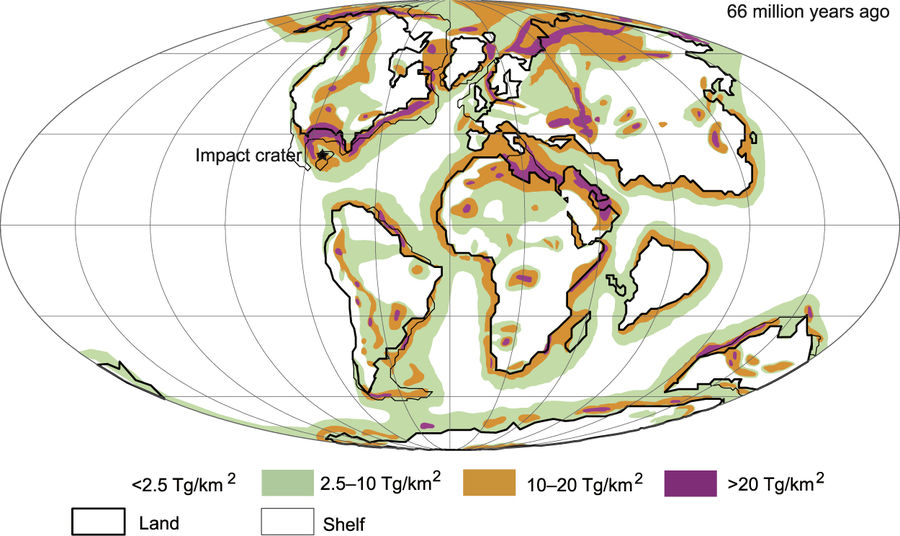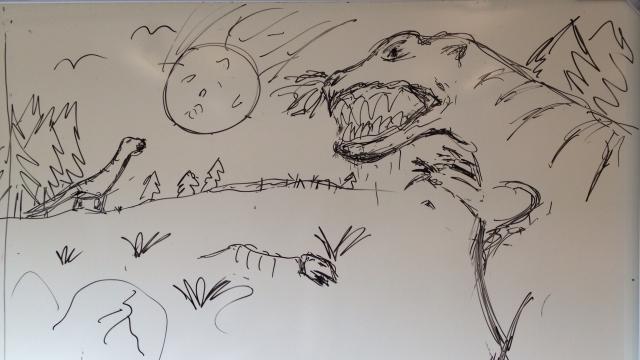Hindsight is 20/20. Maybe you’d be more productive if you didn’t stay up until 3 am binge watching Stranger Things. Maybe you’d be a Nobel-winning scientist if you didn’t smoke too much pot during undergrad and sleep through your lectures. Maybe the dinosaurs wouldn’t have gone extinct if the giant meteor hit…somewhere else.
That’s what these Japanese researchers are saying. Essentially, their model shows that only 13 per cent of the Earth’s surface had the right chemistry to have produced the catastrophic results 66 million years ago.
“The site of asteroid impact, therefore, changed the history of life on Earth,” they write the new paper published today in Scientific Reports.
You know the story – 66 million years ago, an asteroid maybe nine kilometers in diameter hit the present-day Yucatan Peninsula, creating the Chicxulub crater. Recent models have shown that it probably threw 300 gigatons of sulphur and 420 gigatons of carbon dioxide into the air, blanketing the planet and causing a sort-of nuclear winter.
[referenced url=”https://gizmodo.com.au/2017/11/dinosaur-killing-asteroid-basically-brought-a-nuclear-winter-says-new-model/” thumb=”https://i.kinja-img.com/gawker-media/image/upload/t_ku-large/arjizccs2gux0x2m3958.jpg” title=”Dinosaur-Killing Asteroid Basically Brought A Nuclear Winter, Says New Model” excerpt=”If and when the nuclear holocaust begins to bring down society as we know it, it isn’t the initial blasts you should be worrying about. Carl Sagan and other scientists once hypothesised that dust blocking out the Sun could bring a nuclear winter. It probably happened before – to the dinosaurs.”]
But the researchers’ new model shows that only about thirteen per cent of the Earth had the right makeup of hydrocarbons to produce the soot that blankedted the world. They present the below map with their study, where only orange and magenta regions had the right chemical makeup to cause the 8 to 11 degree Celsius (14 to 20 degrees Fahrenheit) cooling, they say.

The authors told the New York Times that they thought the dinosaurs still might be around today. But that article cites some scientists who had several criticisms, include questions over whether or not the soot actually came from the dirt or from the burning afterwards. Research has also shown the dinosaurs were already in decline, reports The Guardian.
Again, hindsight is 20/20. But I’m kind of glad the dinosaurs went extinct, to be honest.
